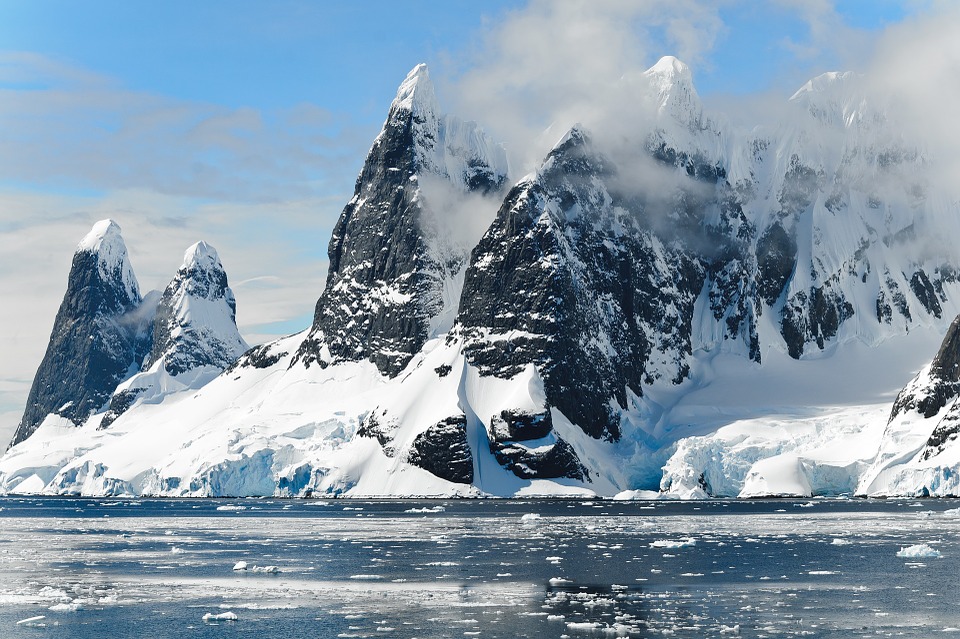
NEW YORK, NY - Last week, a significant portion of the population of the United States had to deal with sub-zero temperatures - the likes of which have not been seen in this country before, leading to renewed debates in regards to the effects that Climate Change are having upon the planet. It turns out that a gradual warming of the planet’s atmosphere over the long haul can actually make things colder in the here-and-now.
Areas in the Midwest last week reported temperatures as low as 50 and even 60 degrees below zero – colder than the North Pole – which is an astonishing low for a region of the country already known for harsh winter weather. Meanwhile, if we go south of the equator, Australia has been experiencing a heat wave of mammoth proportions, with average daily temperatures well into the 100’s. It’s gotten so bad in Australia, as a matter of fact, that hundreds of thousands of fish have literally choked to death in the water. And while we’re discussing the southern hemisphere, we would be remiss to mention that Antarctic’s largest glaciers have been reported to be showing signs of ruptures, an indication that the region is warming at a record pace.
Clearly, the climate – the statistics of weather over long periods of time – of this planet, as opposed to the weather – which is merely the current state of the atmosphere – is in a period of rapid flux never before seen in human history, and as 2019 begins, it appears that the new year is picking up right where 2018 left off, unfortunately, with Climate Change accelerating at a destructive rate. However, it’s easy to see why people might be confused as to how Climate Change can be responsible for both exceedingly hot and exceedingly cold weather patterns at the same time, but these extremes fit with research into how humanity’s carbon footprint upon our planet are having such an impact.
Simply put, carbon emissions as a result of human activity are cumulatively increasing up in the planet’s atmosphere; as a result of this build-up of carbon, the warming of the planet overall begins to increase, causing the polar ice caps to melt and disrupt the temperature gradient between the Earth’s North and South Poles and the equator. This has the effect of flattening out the temperature gradient, which according to theory causes the jet streams – wind patterns that drive the planet’s weather systems – to weaken.
The weakening of the jet streams results in heavier, high-pressure weather fronts to be more difficult to propel on their natural path, causing them to remain in regions longer than they ordinarily would, resulting in potential heat waves. Likewise, during winter in the Arctic, warmer air drawn from the south as a result of a looser polar vortex not only makes for higher temperatures in the region, but also allows frigid air to escape to neighboring parts of the planet that it wouldn’t ordinarily reach; this explains the freakishly cold spell that the American Midwest is currently enduring.
The global trend is that temperatures overall are on the rise, and according to reports, the last four years has been the warmest on record. If mankind wishes to avert the eventual environmental disaster that the planet is facing in the future, countries need to come to an understanding and work together in order to save the Earth. Carbon dioxide levels in the atmosphere are the highest they have ever been, according to reports; Earth is millions of years old, while mankind has only inhabited the planet for a mere 200,000 years, so the human race has no real experience with the new climate that is being created by its actions.
Recently, the Intergovernmental Panel on Climate Change – a climate science division of the United Nations – noted that North America and Australia are expected to bear the brunt of rising temperatures, which will result in unexpected, unprecedented, and at-times unpredictable changes to weather patterns as time goes by. More areas are reporting droughts, heat waves, rising sea levels, and acidifying oceans, and only by working together and making a uniform plan to reduce carbon emissions will curb the scourge of Climate Change.


